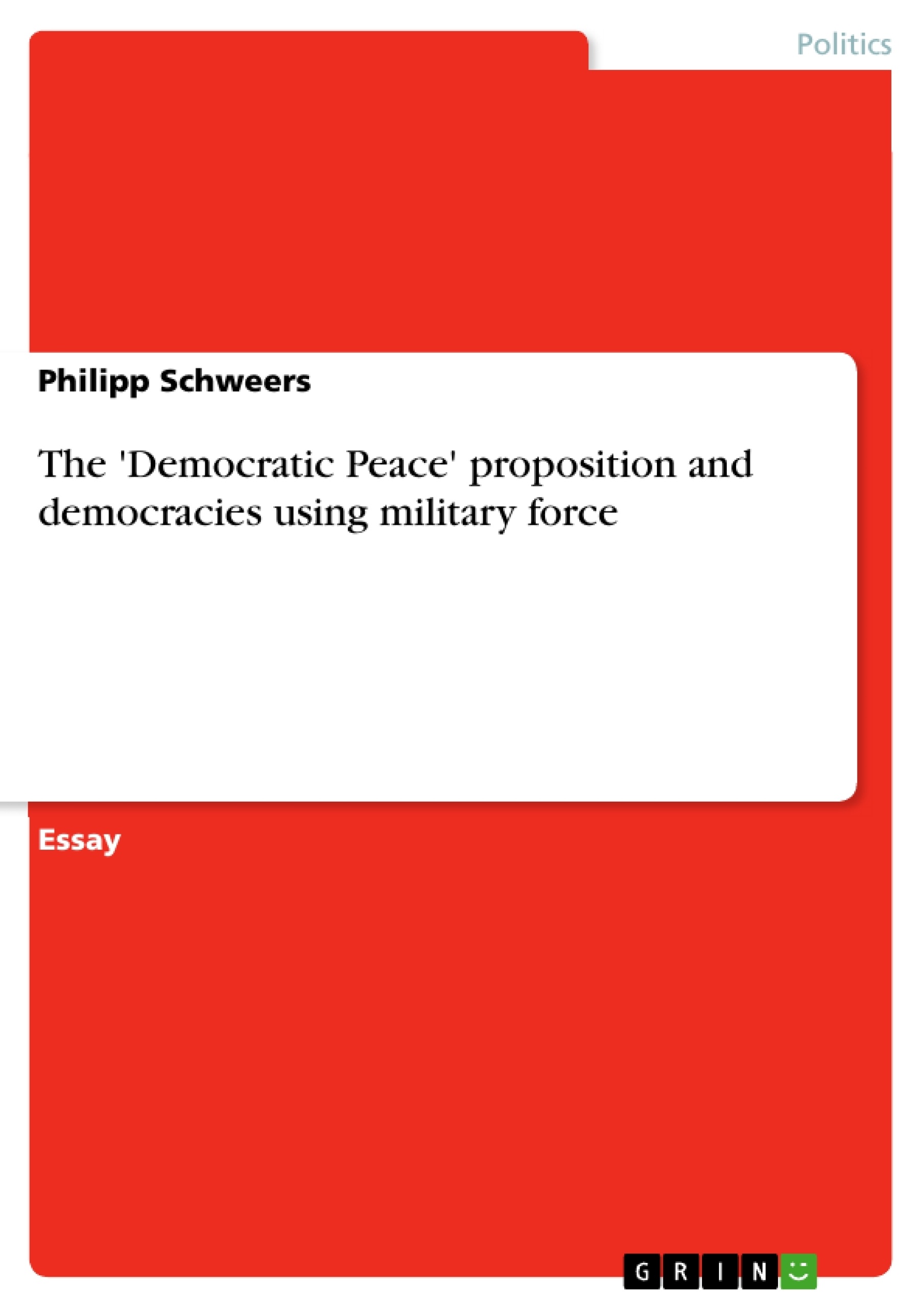The theory of democratic peace is perhaps one of the most widely accepted propositions among international relations scholars today. A vast body of literature, from theoretical elaborations to statistical measurements, concerning liberal peace and/or democratic peace theory has been developed and has explored the proposition profoundly. While it is almost empirically proven that the probability of wars between democratic states is very low or even zero, war is obviously – while having a look on recent or current armed conflicts in which democratic states are engaged – still an option for liberal democracies with regards to disputes with non-democratic states. On a first glance this seems to be paradox. But, while having a deeper look into the scientific discussions, approaches and explanations, it seemingly becomes clear that these two parts – namely the peaceful conflict-resolution between democratic states and democracies’ use of military force – are not conflicting.
Inhaltsverzeichnis (Table of Contents)
- The "Democratic Peace" proposition and democracies using military force
- Theoretical Background
- The Democratic Peace Theory
- Explanations of the Democratic Peace Theory
- The rationalist explanation/The institutional approach
Zielsetzung und Themenschwerpunkte (Objectives and Key Themes)
This paper explores the theory of democratic peace, a prominent proposition in international relations scholarship. It examines the historical development of this concept, analyzes its core arguments, and assesses the different explanations proposed for its existence. The paper further investigates whether the democratic peace theory can adequately explain the use of military force by liberal democracies, despite their seemingly peaceful interactions with each other.
- The origins and development of the democratic peace theory
- The core propositions and arguments of the democratic peace theory
- Different approaches to explaining the democratic peace, including institutional, constructivist, and interdependence perspectives
- The applicability of the democratic peace theory to the use of military force by liberal democracies
- The potential for democratic peace theory to address contemporary security challenges
Zusammenfassung der Kapitel (Chapter Summaries)
The first chapter introduces the concept of democratic peace, highlighting its widespread acceptance among scholars and the significant body of research dedicated to it. It traces the theory's roots back to Immanuel Kant's writings and examines the resurgence of interest in the topic following the Cold War. This chapter also explores the core proposition that democracies are less likely to engage in war with each other, noting that this assertion is not universally accepted.
Schlüsselwörter (Keywords)
The key themes and concepts covered in this paper include democratic peace theory, liberal peace, institutionalism, constructivism, interdependence, rationalism, international relations, war, peace, military force, democratic institutions, checks and balances, electoral liability, and conflict resolution.
Frequently Asked Questions
What is the core proposition of the Democratic Peace Theory?
The core proposition is that democratic states are highly unlikely to engage in armed conflict or go to war with one another.
Does the theory claim that democracies are generally peaceful?
No, the theory specifically focuses on the relationship between democracies. It does not exclude the possibility of democracies using military force against non-democratic states.
What are the main explanations for Democratic Peace?
Explanations include the institutional approach (checks and balances), the rationalist approach (electoral liability), and the constructivist approach (shared norms and values).
Who is considered the philosophical father of this theory?
Immanuel Kant is often cited as the originator of the idea, particularly in his work "Perpetual Peace," written in the late 18th century.
Why is Democratic Peace Theory relevant today?
It remains a central pillar of liberal international relations theory and is used to analyze contemporary security challenges and the promotion of democratic institutions worldwide.
- Citation du texte
- Philipp Schweers (Auteur), 2009, The 'Democratic Peace' proposition and democracies using military force, Munich, GRIN Verlag, https://www.grin.com/document/129263



